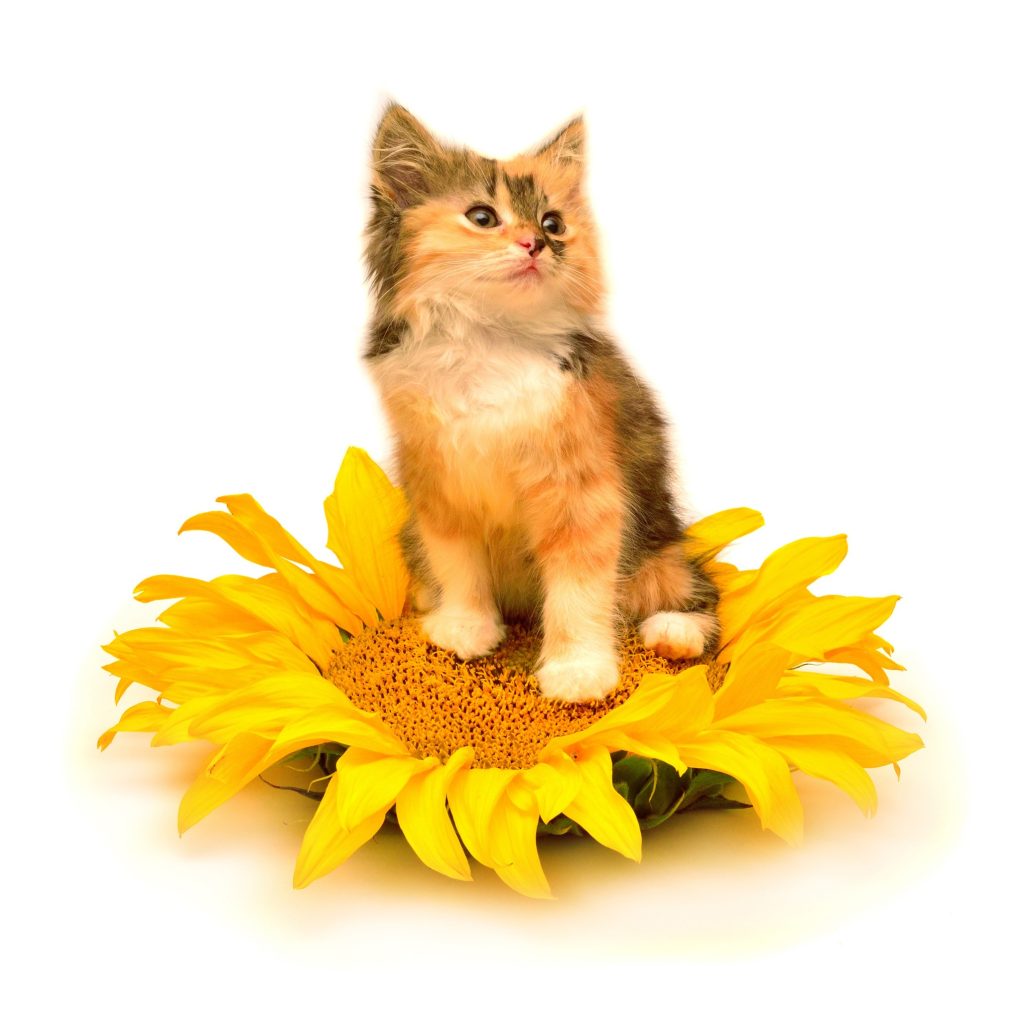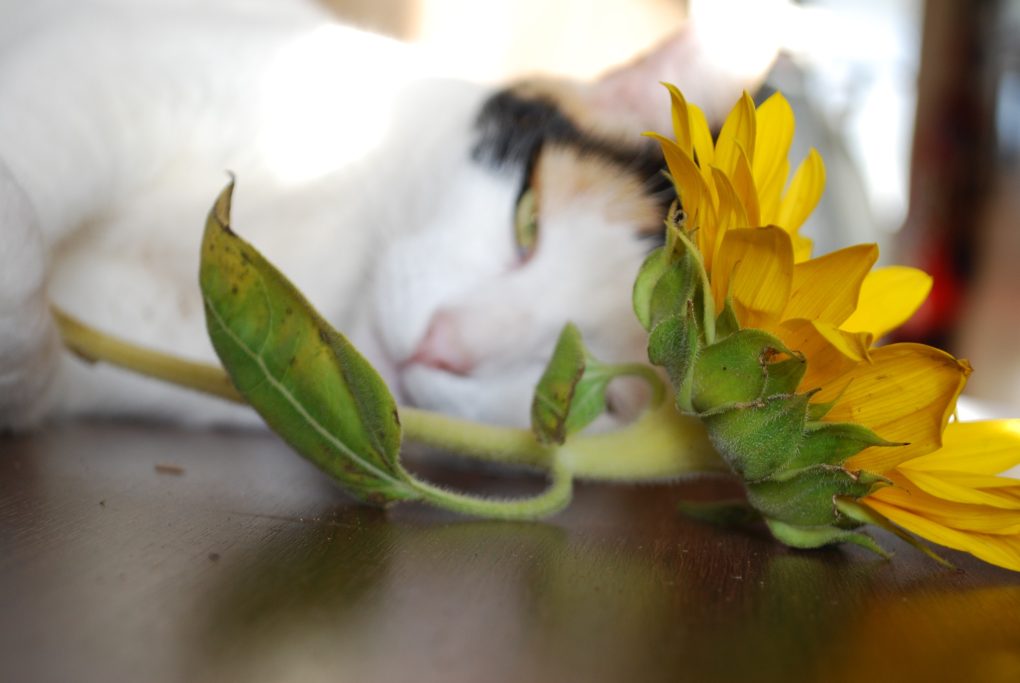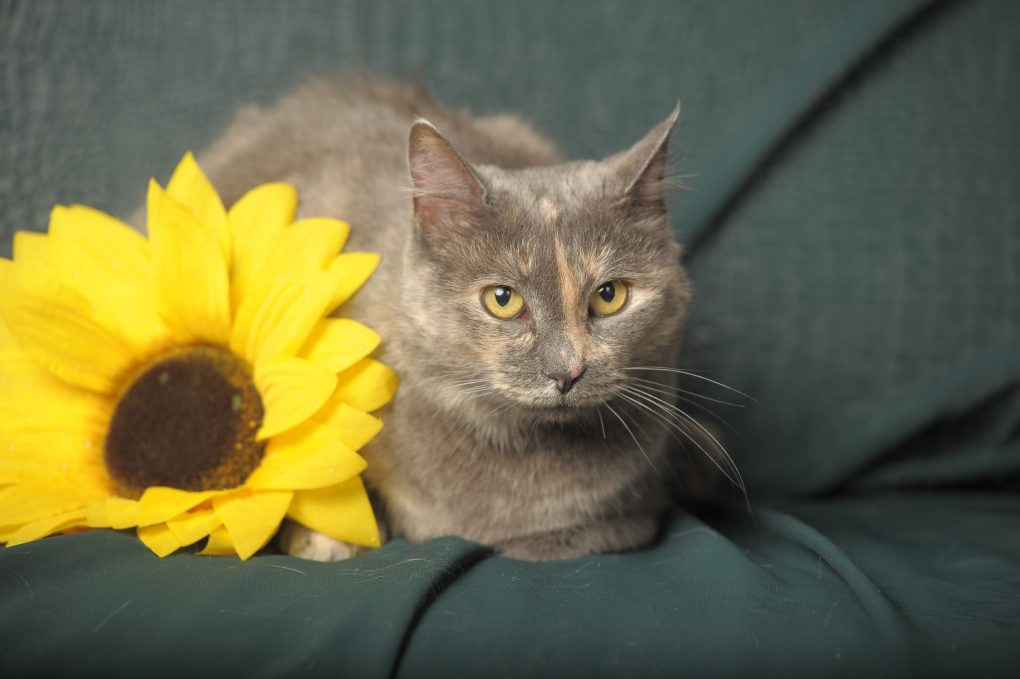Are Sunflowers Toxic To Cats? – Here’s What You Need To Know
Sunflowers are not toxic to cats, but it is important to be aware of their potential to contain irritating chemicals that could cause irritation or even skin rashes in cats. If you are concerned about the safety of your cat’s exposure to sunflowers, it may be best to keep them away from the plant.

They are one of the most popular flowers for cats. The flower has a distinctive shape and is loved by many pet cats for its soft, sweet scent. However, some cat owners are concerned about sunflower toxicity in their pets. In this article, we’ll discuss the toxic effects of sunflowers on cats and how to determine if your cat is being exposed to too much or too little of the flower.
Table of Contents
Can Cats Eat Sunflowers?
Sunflowers are non-toxic to cats and should not cause ill effects if your feline has a sneaky nibble here and there. Sunflowers contain about 16 calories per 100 grams of flower and are rich in vitamins A and E, antioxidants, and essential minerals. Cats may love sunflower petals for their nutritional content and unique taste, but you may want to avoid feeding your cat too many due to their high caloric content. Sunflowers may cause minor stomach upset or vomiting if consumed in large quantities, so be sure to monitor your kitty’s intake carefully. Overall, sunflower seeds are safe for your cat to enjoy, but you should always watch how much your cat is eating.
Can Cats Eat Sunflower Seeds with Shells?
Many cat owners worry about their feline friends eating sunflower or petal-covered seeds. However, cats should not be allowed to snack on sunflower seeds with their shells on them, as this can lead to stomach problems. Instead, cats should be allowed to munch on sunflower seeds without the shells or with the shells removed. This is vital as the shells of sunflower seeds can cause problems if they are not properly chewed. Additionally, cats should be careful not to feed sunflower petals regularly as cats can easily become fat from them. Instead, give your cat a treat now and then to keep him or her fit and healthy. Finally, cats should not make a habit of eating sunflower petals as this can lead to toxicity issues in the long run.
Sunflower seeds are non-toxic and safe for cats to eat if they haven’t been shelled. Sunflowers are a genus of flowering plants native to North America with edible seeds. Cats may experience stomach upset if they consume sunflower seeds with the shells still on. Unshelled sunflower seeds contain phytic acid, which may prevent the absorption of minerals. Sunflower kernels contain fatty acids that can benefit the skin and fur of cats and provide an energy source. This food is a great way to add nutritional value to your feline’s diet without adding unnecessary ingredients or preservatives. These seeds also make for a healthy treat for kitties to enjoy on their own or in treats designed especially for them.
Besides, sunflowers are beautiful and environmentally-friendly plants that can be used as decorations or in organic farming. Besides, it wouldn’t do any harm to offer your feline some sunflower seeds occasionally as part of its regular diet.
Why Do Cats Like Flowers So Much?

Cats may enjoy the texture of flowers, as they have sensitive mouths. Alternatively, cats may investigate flowers due to the change in their environment. Cats are feline predators, and they often seek out new sources of food or prey. This can include plants and other animals that can provide a change in their diet.
Regarding cat safety, each cat is different and may respond differently to certain smells. While most flowers are safe for cats, some can be toxic and cause serious health issues if eaten in large quantities. It is always best to keep cats away from plants that are poisonous or toxic to them, as this will help ensure their safety and well-being as well as the safety of other household members.
Symptoms of Flower-Poisoning Cats
If your cat has ingested a toxic or harmful plant, it can cause vomiting, diarrhea, or other gastrointestinal issues. It can also lead to kidney or liver failure and breathing problems. If you notice any of these symptoms from your pet eating flowers, you should consult a veterinary professional for treatment.
Sunflower seeds are not typically associated with cat flower poisoning, but the thorny stems can cause pain or discomfort. Eating toxic flowers can also lead to mouth irritations, excessive salivation, and organ damage. Ingesting a non-toxic flower can result in vomiting, diarrhea, or other gastrointestinal issues. Additionally, sunflower seeds may cause nausea and vomiting due to their high oil content.
If your feline friend experiences these symptoms from eating flowers, you must seek medical attention immediately.
Why Does My Cat Eat Sunflowers?
Sunflowers have become popular for cats due to their appealing taste and varied nutritional content. Cats may eat sunflower seeds because their regular diet does not meet all their nutritional needs. Cats are attracted to the umami sensation of sunflower seeds, which have a higher protein content. Sunflower seeds are also easy to find and can be used as a treat or an addition to the regular diet.
However, sunflower seeds must be avoided as a source of nutrition for cats as they can lead to vomiting, diarrhea, constipation, and other gastrointestinal issues. Besides, sunflower seeds are toxic to cats and can cause seizures, liver damage, and even death. Certain plants, such as daffodils, autumn crocus, and peace lilies, should not be fed to cats as they can cause sickness or even death.
Can Cats Eat Sunflower Petals?
Sunflower petals are non-toxic to cats and can be enjoyed occasionally as a treat. However, they should not be used as a staple of the cat’s diet as sunflower seeds contain many calories.
Sunflower petals are highly nutritious and can be used to make treats for your feline friend. They are rich in vitamins A and E, antioxidants, and essential minerals such as magnesium, zinc, and selenium. Eating sunflower petals may cause vomiting, diarrhea, or other gastrointestinal problems.
Even though sunflower petals are safe for your cat to eat, too much may cause vomiting or diarrhea. Also, excessive consumption of sunflower seeds may lead to chronic digestive issues or even vitamin deficiencies in cats.
What Happens If Cat Eats Too Much Sunflower?
Eating too much sunflower can cause various symptoms in cats, such as vomiting or a change in appetite, change in bowel movement, incontinence or urinating more frequently, and behavior change.

When eaten in moderation, sunflower seeds can benefit cats’ health, and experts advise giving cats sunflower kernel treats once or twice per week.
However, too much fresh plant matter can lead to nausea or vomiting and can cause mild but unwanted health issues for cats. If your cat eats too many sunflower seeds, it may develop nausea or vomiting, and it may even vomit repeatedly.
Eating too many sunflower seeds can cause the cat to become lethargic or irritable and may even experience seizures. Too much sunflower seed consumption is not beneficial for your cat’s health and should be avoided.
Are Sunflowers Poisonous To Kittens?
Sunflowers are non-toxic and may even provide health benefits if eaten in small amounts. Their stalks and leaves contain vitamins B, and E, folic acid, and minerals such as iron and zinc. In particular, sunflower leaves are a source of vitamin A that can benefit cats with liver or eye problems or as part of a healthy diet.
When cats eat large quantities of sunflower leaves or the plants themselves, they can cause gastrointestinal upset due to the plant’s oils. If your kitty eats sunflower leaves or the plants themselves in any amount, monitor the animal’s health closely and contact your veterinarian if you notice signs of toxicity, such as vomiting or diarrhea. As with any plant matter that kitties consume, sunflower leaves should be kept out of the reach of pets as much as possible.
